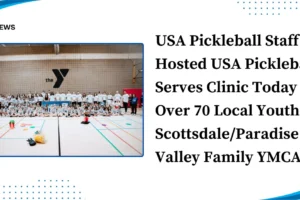To hear cosmetology graduate Briana Lewis tell it, the government’s attempt to stifle online learning would be the educational equivalent of homicide for adult students like her.
“I was going to cosmetology school while I was watching my four kids and working two jobs,” says Lewis, 33. “For me, online learning at odd hours wasn’t a choice; it was a necessity.”
She studied at Avenue Five Institute in Austin, Texas, graduating last year. Shortly after she finished, the school asked her to return to the school as an instructor. She’s been teaching aspiring beauty professionals ever since.
Ed Dept. Changes the Rules
The looming controversy is that the U.S. Department of Education (abbreviated USED) announced in a press release on July 17th that it has singled out career and technical schools by threatening to shut down online, “asynchronous” learning, in which students can complete a portion of their programs online at whatever time is most convenient for them. Leaders of career schools, representing many others, are available to discuss with the press why this is a singularly terrible idea.
Rachel Gober and Samantha Dukes, respectively vice president and campus director of Avenue Five, and Frank Trieu, a Vice President of Evergreen Beauty College in Seattle, say: “Our students, like most nationally at cosmetology schools, are disproportionately female; disproportionately from racial minorities, and, quite typically, the first people in their families to advance their educations beyond high school. We believed USED was supposed to support and defend this kind of student. Why are they attacking them?”
Hybrid Learning Should Remain
None of the three or anyone else in career school administration thinks ALL learning should happen online. In professions like cosmetology, nursing, welding, and medical technology, all agree that hands-on experiential learning is crucial, and that’s why only about 30 percent of the academic programs are taught online. Students take the practical part of courses taught in person, on campus. It’s only the theoretical elements—subjects like chemistry, anatomy, and cosmetology law–where online study, including the asynchronous kind, is in demand and helps students balance school and their busy lives.
The American Dream, Hampered
It’s a fundamental educational truth that the kind of training offered by trade and career schools is veritably a key to good jobs and ultimately, to the American dream. The change being proposed by the Department of Education would penalize students who elect not to attend lengthy and expensive four-year degree programs by taking away their online learning options.
USED has told career schools and community colleges that it no longer supports asynchronous learning because it doesn’t think the schools can adequately monitor students’ online attendance and engagement; this marks a stark reversal from the Department’s 2020 position that existing time tracking technology, “was both viable and appropriate for use in monitoring clock hours completed asynchronously.”
It Ain’t Broke; Don’t Fix It
The Department hasn’t fully explained what they think has changed, but, contrary to what USED asserts, current technology does indeed assure that students are actively engaged in their remote learning.
Community College Agrees
The problematic effects of the USED change are being felt not only at cosmetology schools, but at community colleges like Spokane Community College in Washington State.
Says faculty member Sylvia Garcia: “In Washington, our regulatory agency limits the amount of distance education for specific clock-hour programs. This places the focus on on-site education but still allows for flexibility of distance education. I wish the Department of Education would consider the obstacles this decision will put before hundreds of thousands of students; it will move education progress backwards.”
Why is USED cracking down? Two attorneys for the American Association of Cosmetology Schools, Edward Cramp and Kristina Gill of Duane Morris, write in a recent industry publication article: “When challenged to explain the proposed ban on asynchronous distance learning for these programs, USED only alluded to vague anecdotes of complaints about program quality and concerns about administration by institutions. It could not point to any data or studies substantiating these concerns, because such issues do not exist—a fact [they] recently acknowledged.”
The lawyers continue: “Ultimately…USED stated that it ‘does not wish to impede technological innovations at institutions that can help students overcome barriers to access and completion.’ Unfortunately for students and institutions, that now appears to be exactly what it intends to do.”












Add Comment